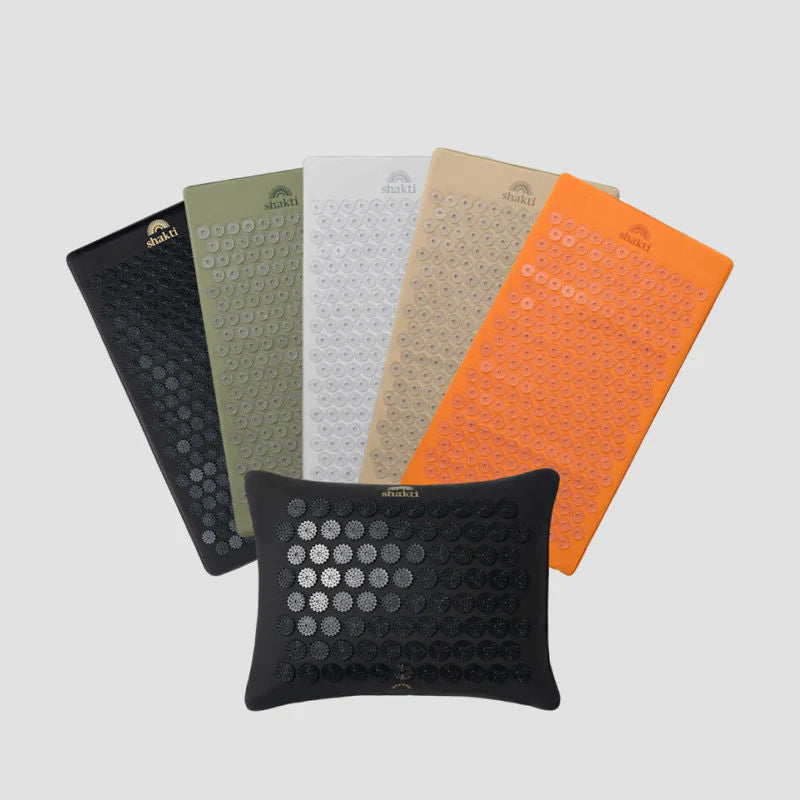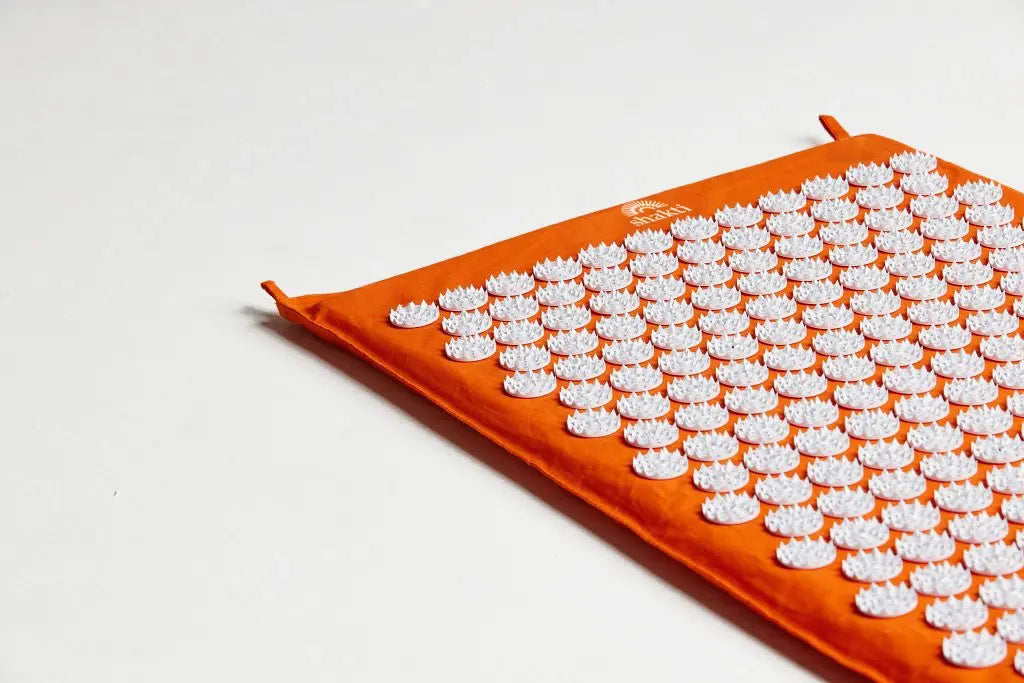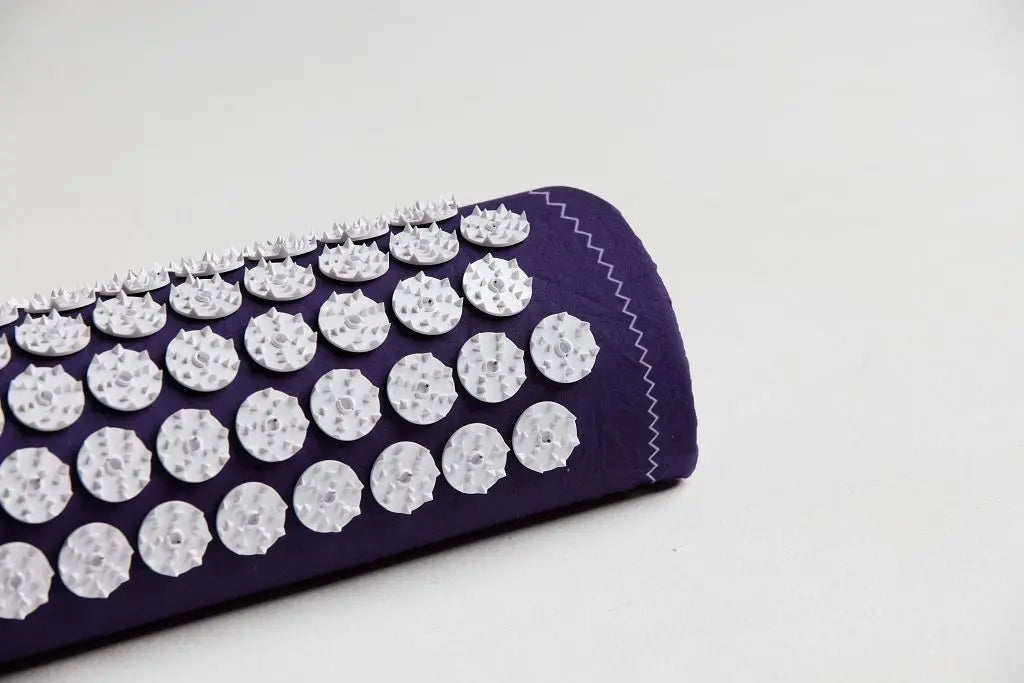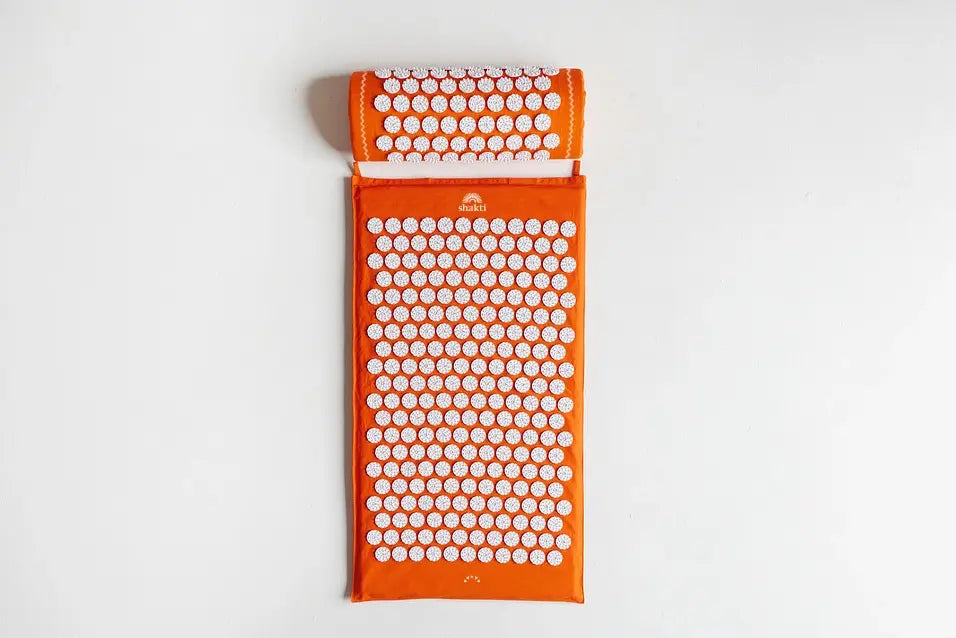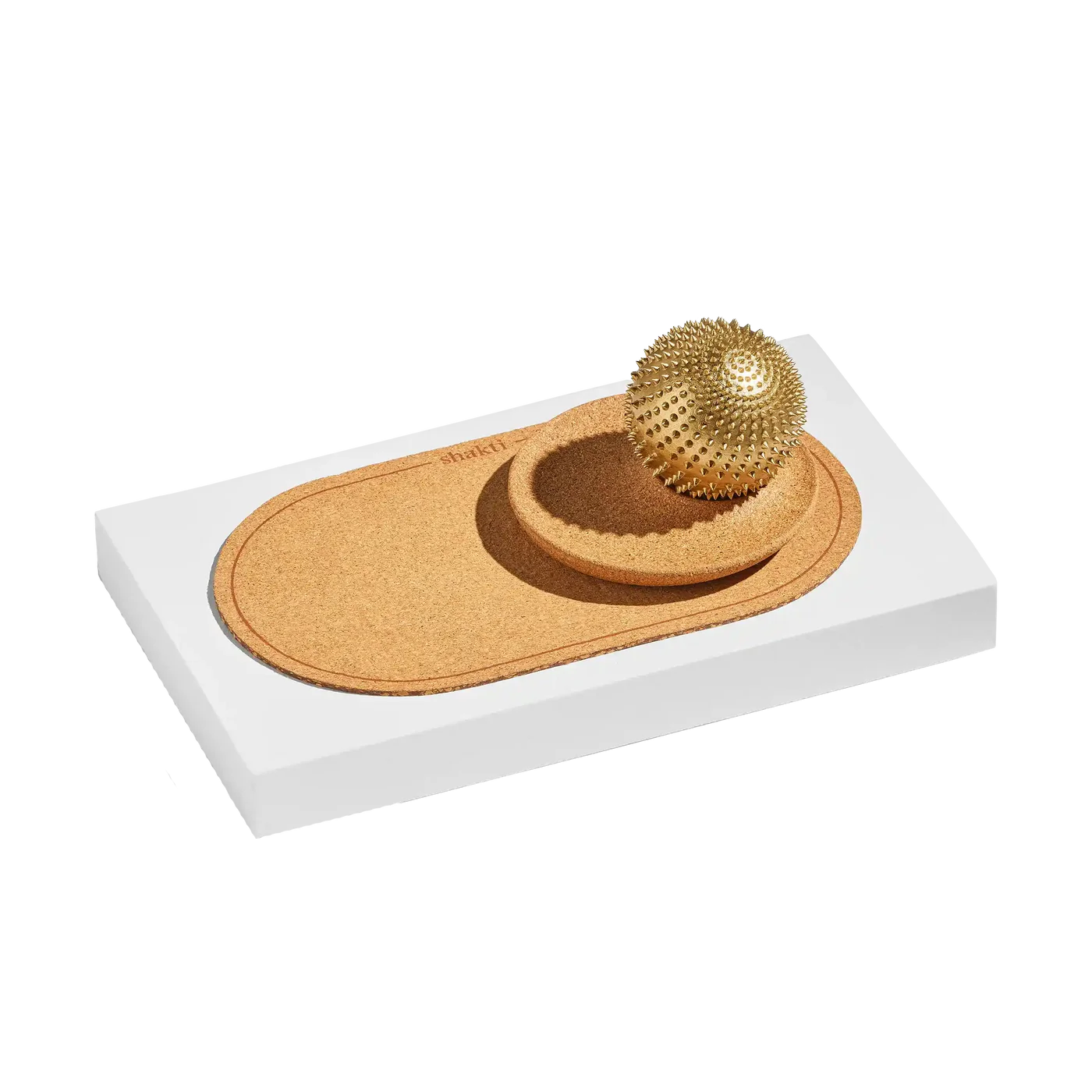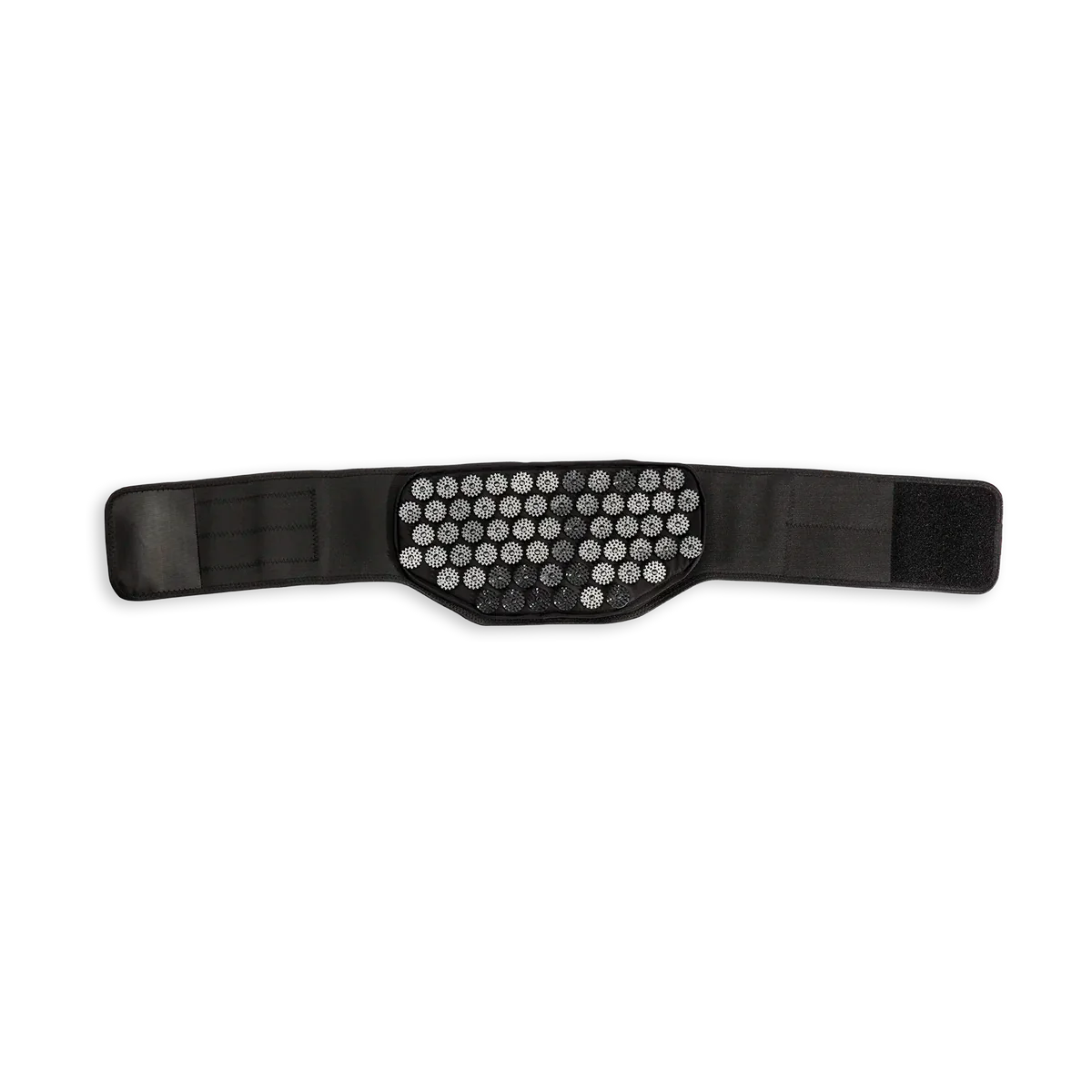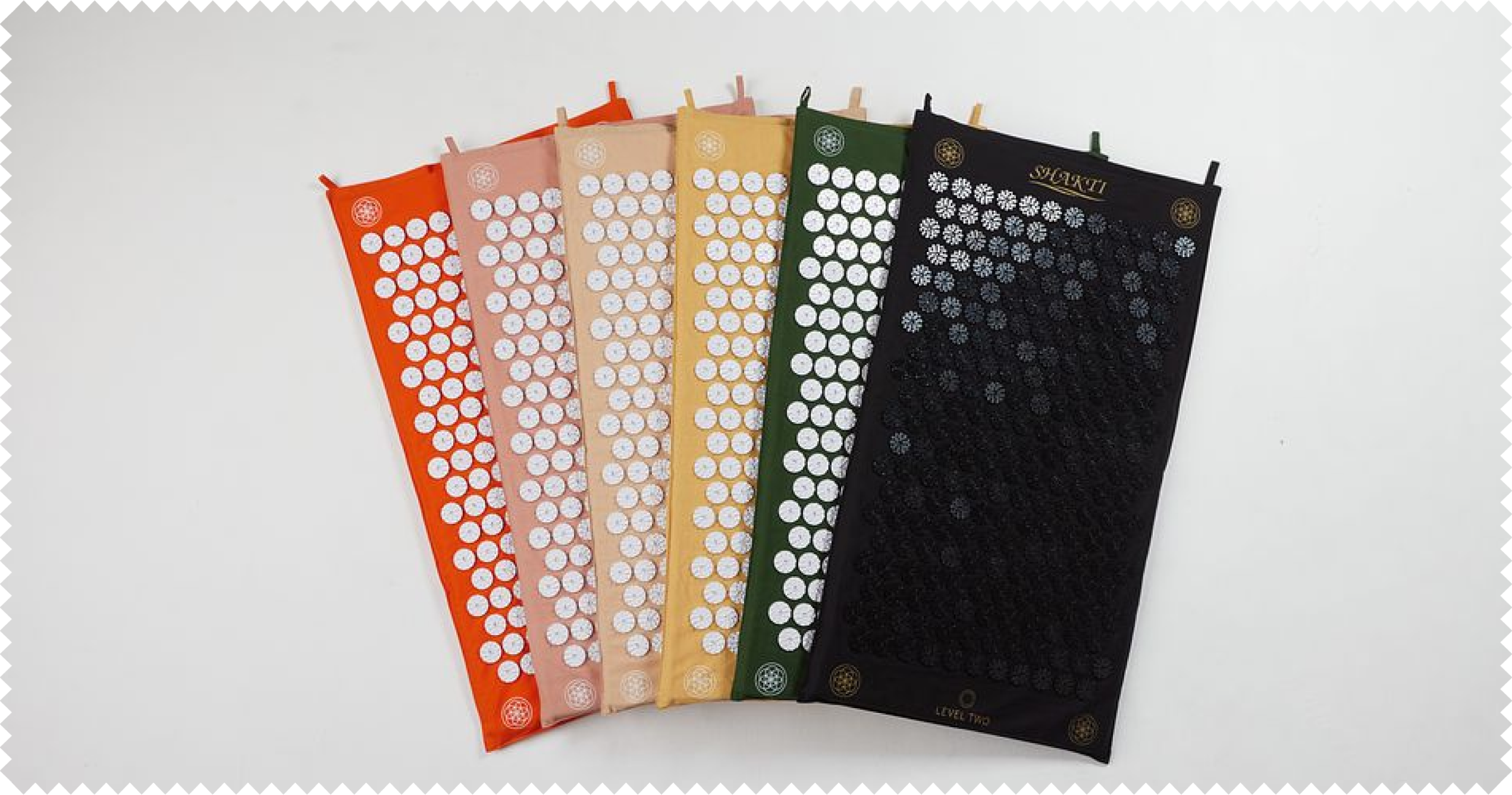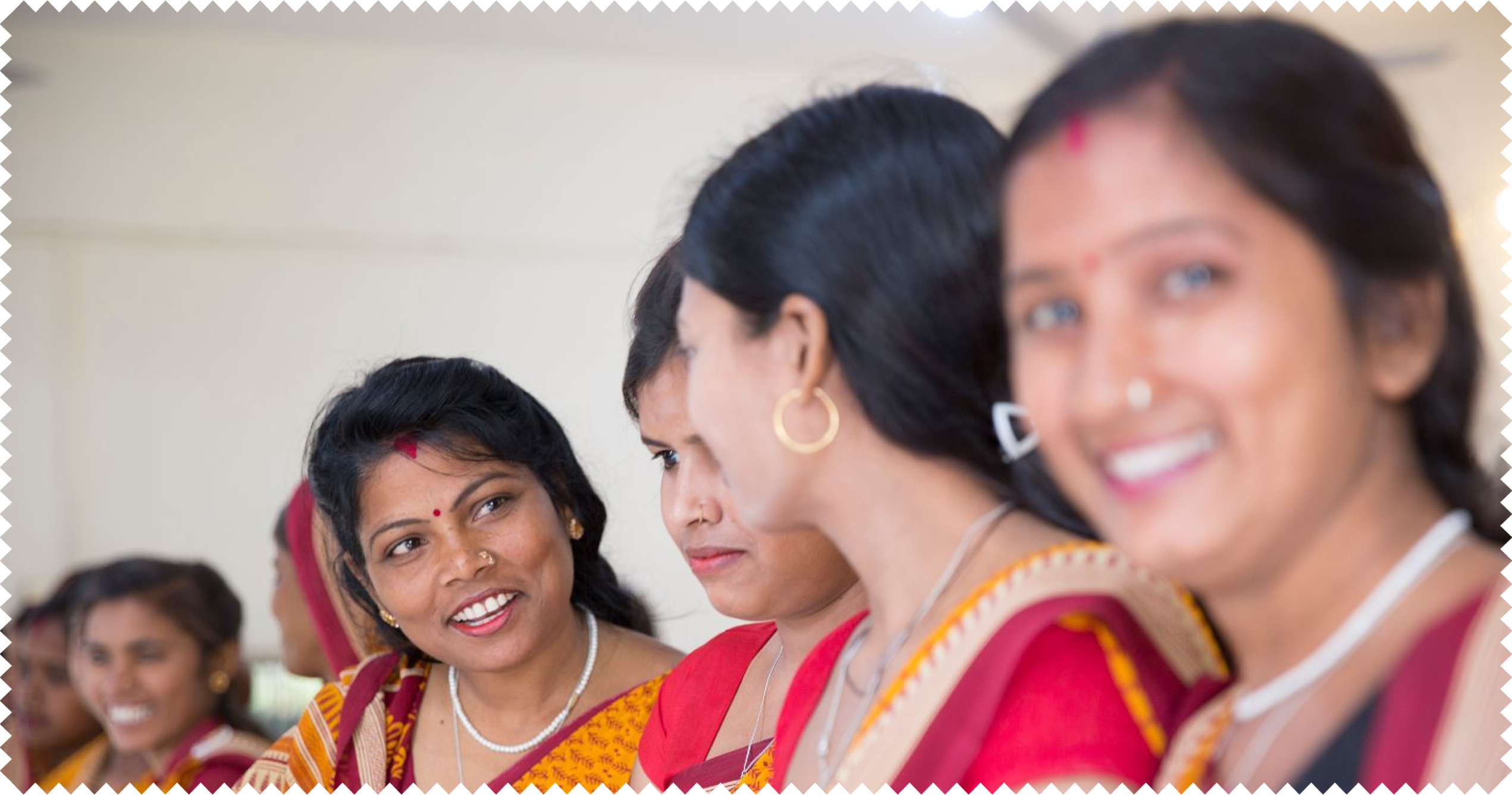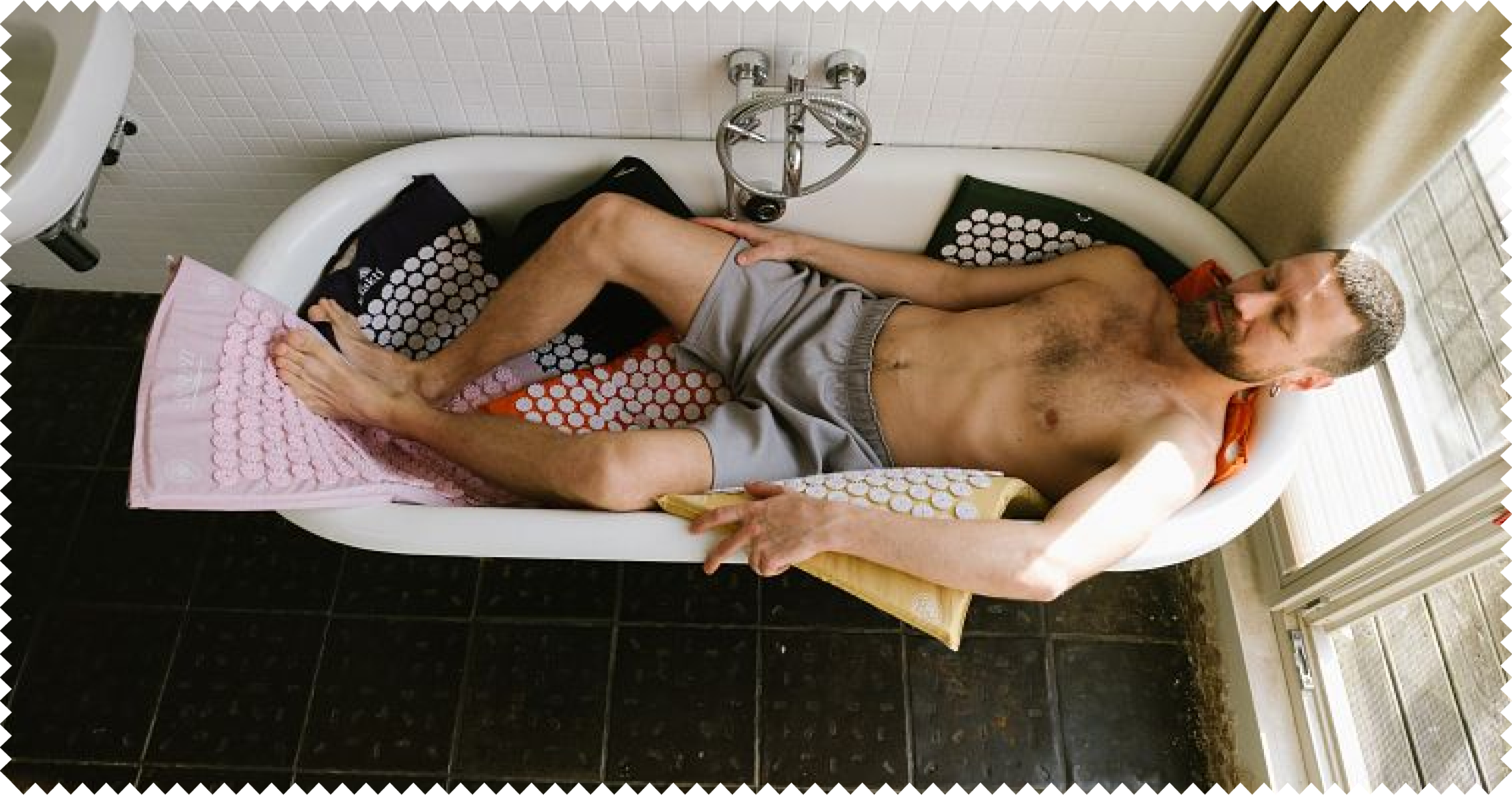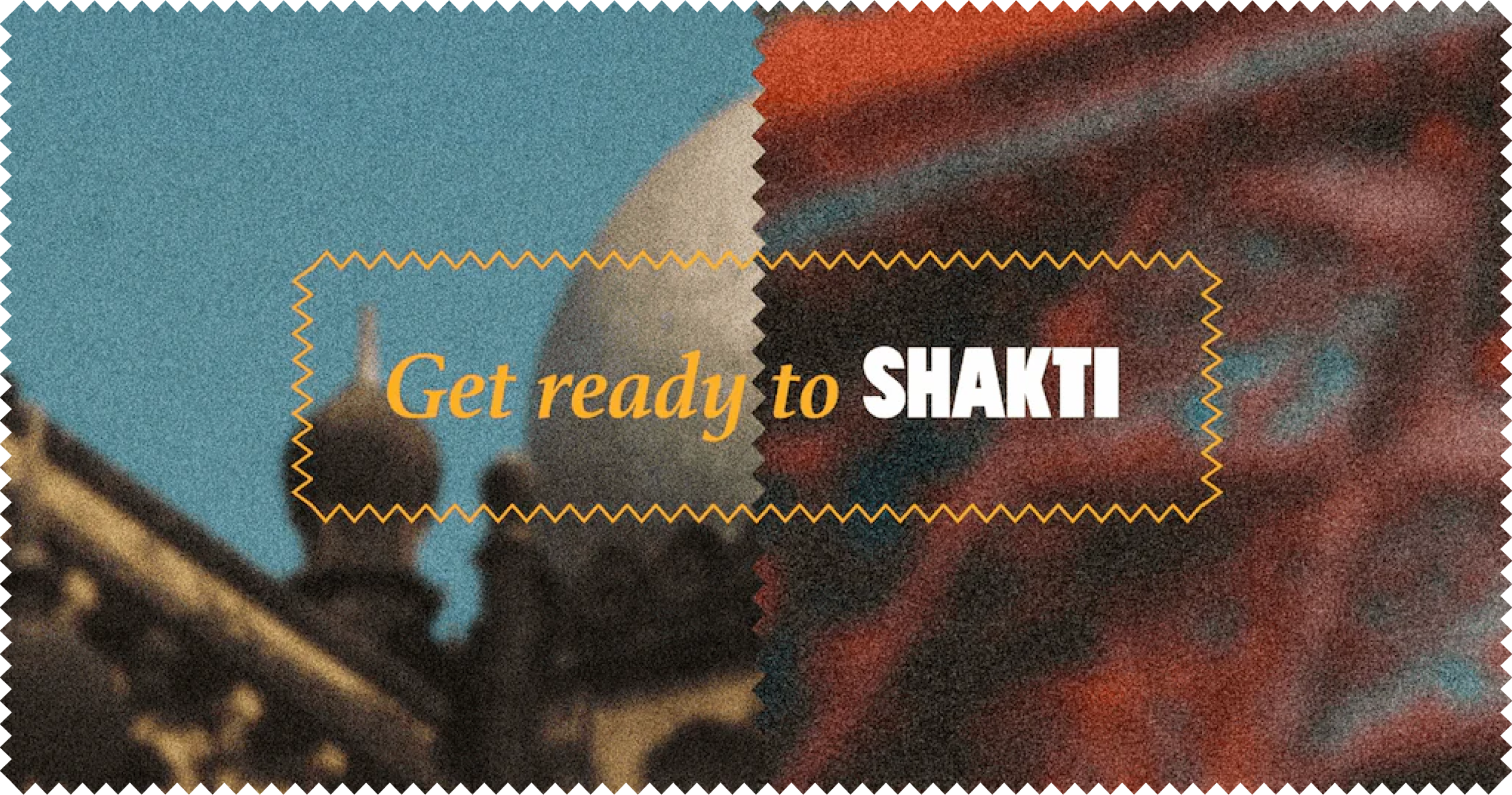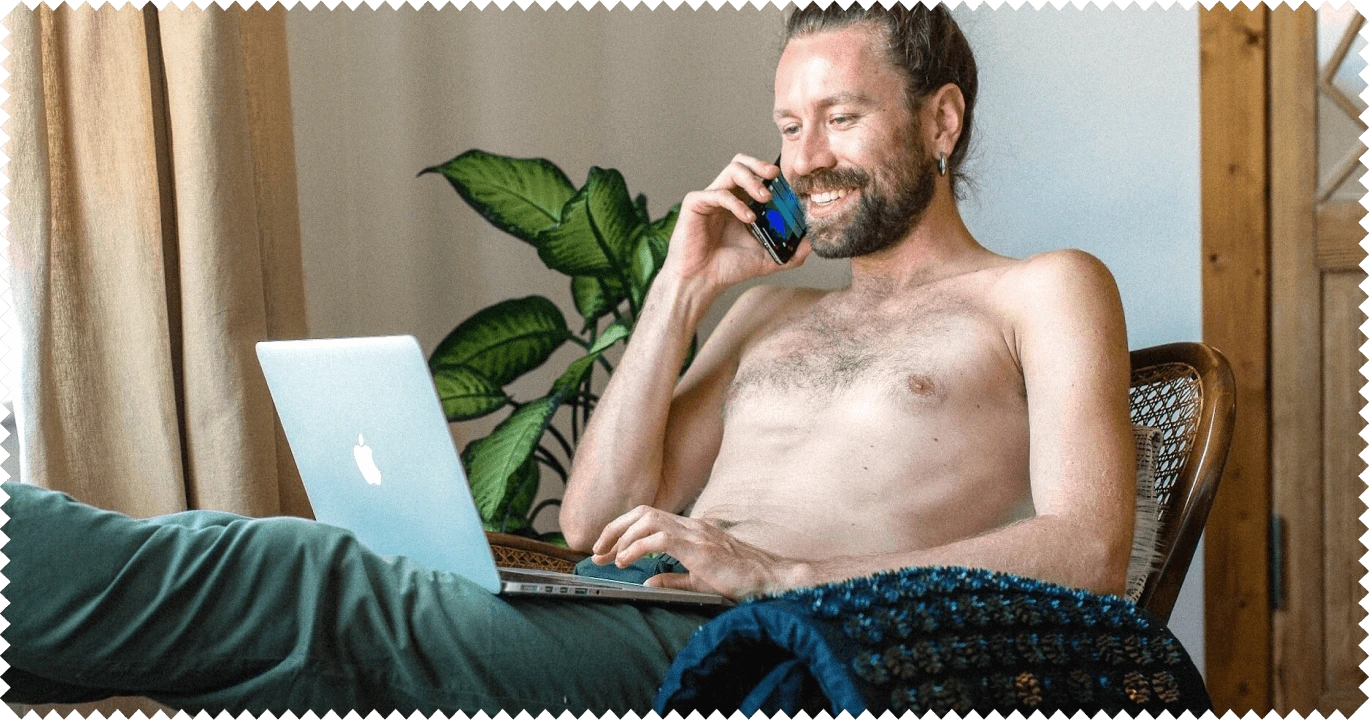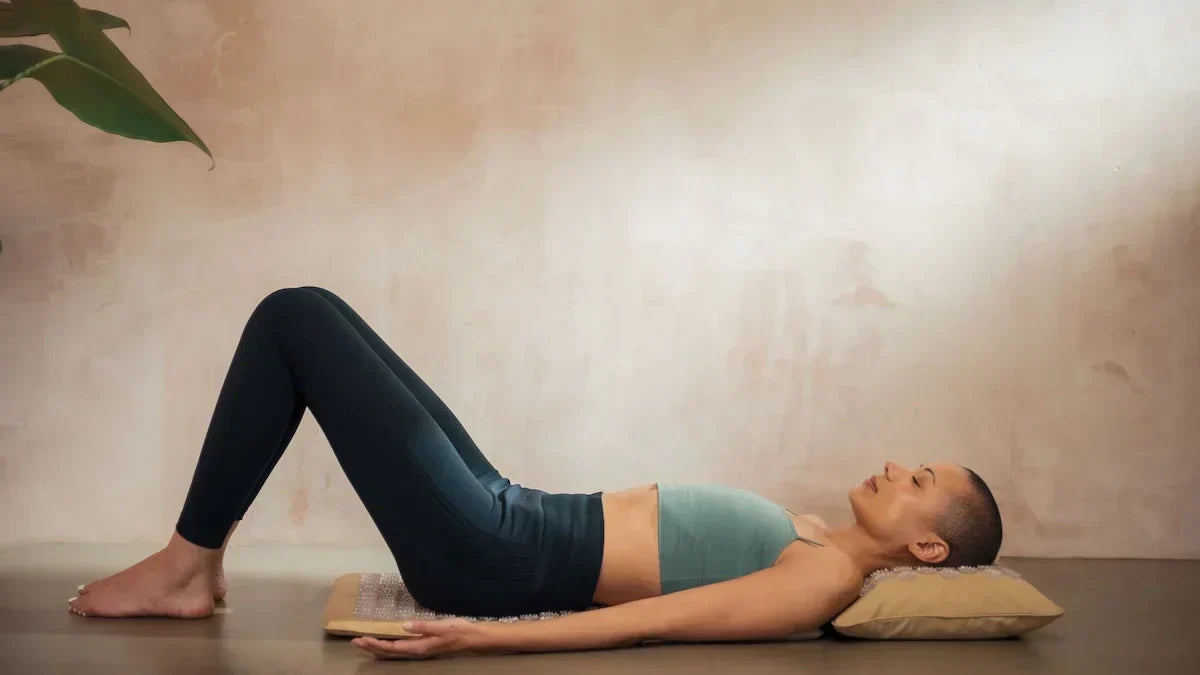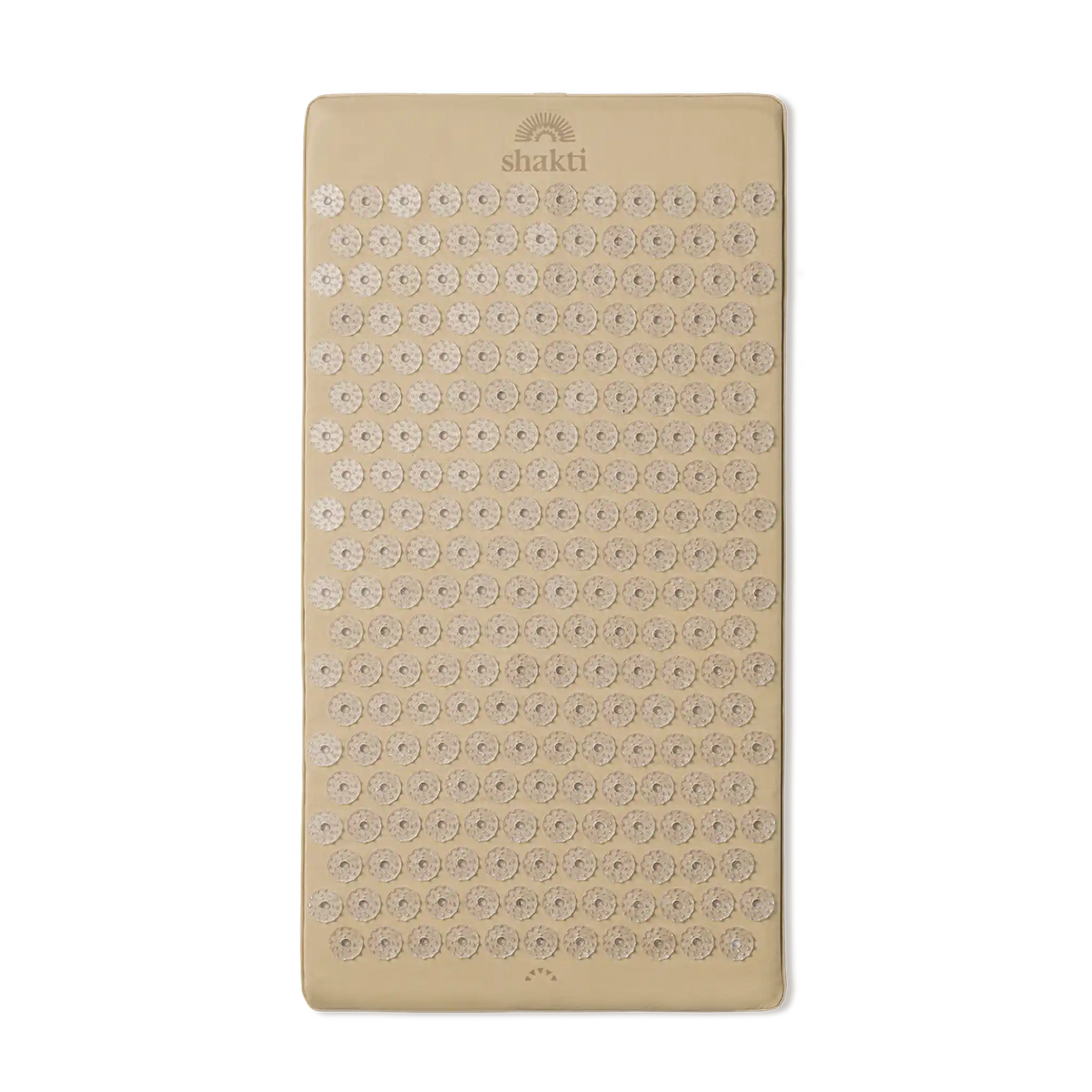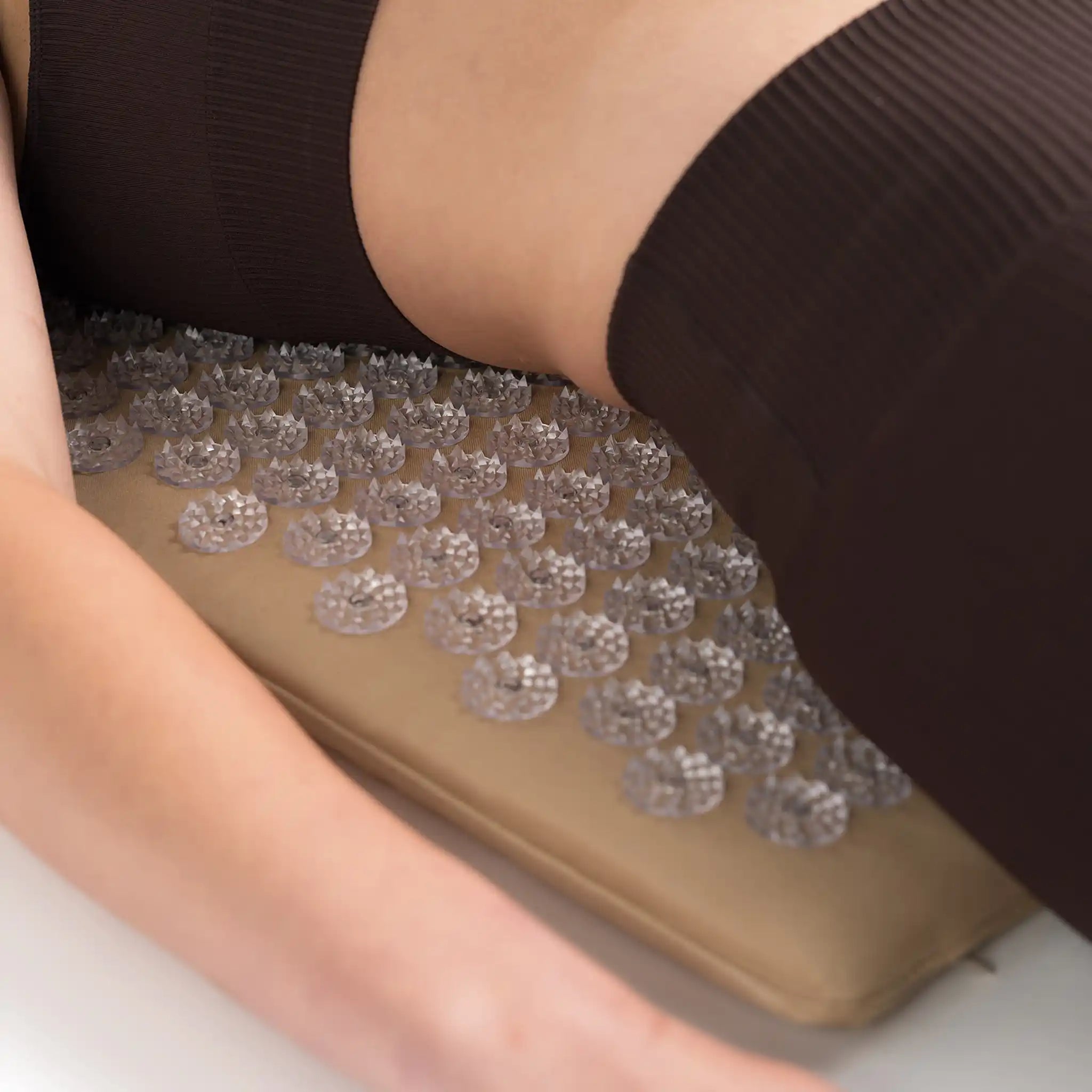Relaxation through acupressure, that is our goal with the Shakti Mat. Letting go, coping with pain and feelings and actively doing something for yourself. Our blog is filled with practical examples, exercises and topics. But we know: There is so much more out there and would like to give you a few exciting insights into other topics today.
In order to think outside the box, we got the author and psychologist Klaus G. Lieg for an expert interview. He knows a lot about exciting and relaxing topics and has countless experiences to share: We talked to him about helpful approaches to mental and physical health such as Flourishing, Resilience, Competence Conviction and TEK Training, in addition to the acupressure mat.
Content
1. what exactly is flourishing?
2nd Interview with Klaus G. Lieg, Dipl. Psych.
3. resilience is currently on everyone's lips
4. a thought experiment at the end
Flourishing, what is that actually?
Borrowed from English, the term flourishing refers to a multi-layered construct: the ultimate goal is a happy and satisfied person. In positive psychology, from which flourishing originates, the aim is to improve a person's overall quality of life. To this end, various relevant factors of a person's daily life are examined more closely and optimized:
- Happiness and life satisfaction
- Mental and physical health
- Sense and purpose
- Character and virtue
- Close social relationships
- Financial and material stability
The goal of Flourishing is to live a fulfilling, healthy life. An improved quality of life in the above-mentioned points ensures that we feel good in our everyday life - and this independently of other influences.
Interview with Dipl. Psych. Klaus G. Lieg
He is a qualified psychologist and examines the complex issue of psychological stress from many different angles in his work. In this interview, Klaus G. Lieg reveals, among other things, the negative beliefs that many people carry within them and shows us the direction we can take to let go of them. Klaus has written two books: "Relaxation in a nutshell" and "The seven pillars of resilience"
Dear Klaus, you are not only a qualified psychologist, but also a coach and are also familiar with acupressure mats. Can you tell me how you came up with this exciting combination?
Klaus: That was in 2009 during a keynote speech I gave at a health fair. I was aware that our brain triggers different reaction patterns to stimuli. For example, when we are in love, touch has an activating effect and our heart rate increases. On the other hand, when we are grieving, touch can calm us down, lower our heart rate and provide comfort.
When I lie on an acupressure mat, stimuli are triggered in the body - due to the high number of small spikes - which, among other things, stimulate blood circulation, relieve back pain and muscle tension or have a positive effect on sleep when used for a longer period of time. The stimulation by the mat triggers neurophysiological reactions on the nervous system, which lead to the release of endorphins and/or neurotransmitters that can naturally reduce pain and positively influence mood.
In your book "Relaxation in a nutshell with the acupressure mat", you give lots of practical tips. Would you say that acupressure mats are a health aid that belongs in every household? If so, why?
Klaus: Yes, an acupressure mat should be in every household. Especially in today's constantly changing world, it's important to let go and consciously switch off from time to time. But not everyone can relax easily alongside work, family, corona etc. or knows a relaxation technique that is good for them personally and works quickly.
But anyone can "lie around". Simply lie down on the mat to recharge your energy account and overcome tension and stress. This simple and effective way of relaxing allows everyone to recharge their batteries for the next stressful phase and, with enough energy, everyone can tackle and overcome stress with more calm and serenity.
You offer TEK training (emotional competence training) for your clients. What is this and does acupressure also play a role here?
Klaus: TEK training according to Prof. Dr. Matthias Berking is about improving stress, self-esteem and emotion regulation by learning how to deal constructively with stressful feelings. This also means that we should and must sometimes endure negative feelings. Another important step is to learn to observe thoughts, feelings and emotions neutrally without reacting to them immediately. This prevents them from building up. However, a prerequisite for the successful use of TEK is regular and intensive practice. And these exercises are much easier to learn in combination with an acupressure mat.
Flourishing is a brand new term for many people, who are reading it here in the article for the first time. How did you become aware of it and why did you decide to include it in your work?
Klaus: I became aware of this through an article by the US psychologist Martin E. P. Seligman on the subject of depression and his contributions in the field of positive psychology.
We tend to think that we have to look outside ourselves for happiness, when in fact we have everything we need within ourselves to be happy. The prerequisite for this is that we take the time to look for it with a curious and open attitude - within ourselves. We should have the courage to be uncomfortable, to question more and to have plenty of discussions.
So that we can "flourish", we can start to stop leaving control of our health to chance, luck or "fate" and instead take our mental and physical health into our own hands. An acupressure mat is a great place to start.
If you want to read more about how to build healthy routines and take better care of your personal needs, we have just the article for you: Selfcare - the art of taking care of yourself
Resilience is currently on everyone's lips
Would you say that there is both mental and physical resilience? In addition to coaching, is there another way to work on resilience with exercises at home?
Klaus: Yes, there are both: while psychological resilience deals with mental stress and the reactions to it (for example: constructive vs. destructive thought patterns), physical resilience is about the body's ability to adapt to new challenges, to maintain stamina and strength in the face of demands and to recover efficiently and effectively when the body is acutely damaged. This includes exercise as well as a conscious diet.
If health is the natural state of the body, "resilience" simply refers to the body's ability to recognize and express its true strength. This allows you to return to this state again and again, both mentally and physically.
There are many good and free exercises online on the subject of resilience that anyone can and should do at home to strengthen their mind and body. You don't necessarily have to buy my book ("Die 7 Säulen der Resilienz" from Silberschnurverlag).
But exercise, exercise, exercise is still the most effective thing for physical resilience, alongside spending time with loved ones. And taking time for yourself. For mental resilience, the phrase "Do I want this?" is still the first commandment!
A positive mental and physical state is a goal that many people strive for but never achieve. In your experience, why is this the case?
Klaus: This is usually due to destructive beliefs. Beliefs often have their origins in childhood - their potentially destructive effect unfolds primarily in adulthood.
We humans tend to give more weight to things that go wrong than to things that go right. So much so that a single negative event can take over and direct our thoughts in a way that is detrimental to our work, relationships, health and happiness.
Overthinking and excessive worry create feelings of stress and anxiety that can lead to anxiety or depression if left untreated. Regaining control over your thoughts is the key to feeling better again. Our task should therefore be to get to the bottom of our "destructive beliefs", to unmask and expose them so that we can look at and question them.
Whatever beliefs are destructive to you, change them. Correct them. Disprove them. Prove to yourself that these beliefs are not (anymore) current, so that you can let them go with conviction.
As a psychologist and coach, you also deal with competence persuasion and optimism. In your opinion, what are the biggest challenges many people face in these two areas and what are the causes?
Klaus: I immediately think of Helmut Schmidt, who said this apt phrase: "That's the whole pity: the stupid are so sure and the clever are so full of doubt."
Well, optimism is the stable belief that one will generally experience good outcomes in life. We believe that things will turn out for the best. And competence belief is our expectation that we can interact effectively with our environment. We believe that we know what to do and can do what it takes to be successful. Both psychological constructs are expectations of achieving good outcomes in life. Both are related to increased well-being, better stress management, and more effective self-regulation.
A key difference is that perceived competence focuses on the person's behavior to succeed, whereas with optimism, the expected positive outcome may not depend on behavior - other factors could contribute to achieving the favorable outcome. Competence beliefs are also always related to self-efficacy. High self-efficacy is related to better well-being, and low self-efficacy is related to lower well-being. The causes often lie in childhood.
In order to grow up healthily, children need attention and a genuine interest in the feelings and unfulfilled basic needs behind their behavior. A constructive relationship - unconditionally. This also includes arguing properly and respectfully time and again and making an effort to compromise.
So support your children in building their resilience. Because that's how you raise them not only to be a strong adult, but a happy one at the same time.
A thought experiment at the end
Can you tell me five typical beliefs of people that favor a negative emotional and physical state? What alternative beliefs could I choose instead to pave the way for a positive state?
Klaus: Yes, very much so. As mentioned above, this is due to our destructive beliefs, which can be compared to self-fulfilling prophecies that have a detrimental effect on our emotional and physical health.
Example: "I'm not enough", "I'm not good enough", "I'll never be happy" or "Others are better". "I can't do anything", "I'm always unlucky", "I'm unattractive" or "I'm worthless", etc.
Just because we have grown up does not mean that we automatically free ourselves from old thought patterns. Destructive beliefs often have a lifelong effect. But only if they remain unrecognized and unchanged.
To remedy this, we need to recognize these beliefs, find their origin and then dissolve them. For example, the sentence "I don't succeed at anything" can be rephrased as "I sometimes succeed at something" and ideally backed up with examples from my own biography.
There are a lot of exercises from behavioral therapy for this, with the quickest help being bifocal multisensory intervention techniques like PEP or EMDR. For these and the behavioral therapy interventions, there are well-trained colleagues who can help quickly in a brief intervention in just 4-6 hours.
The practice of overcoming self-criticism or destructive beliefs is a gradual process and requires practice. We have probably all spent many decades thinking these thoughts and it will take some time to change them.
Fortunately, what we practice gets easier with time. So remember to be gentle with yourself, especially during these challenging times. Just lie down, preferably on the acupressure mat.
We thank Dipl. Psych. Klaus G. Lieg for the interview and his many info and tips about mental health and acupressure. You can find more concrete acupressure exercises for relaxation, pain and many specific complaints in our blog.
We wish you a fulfilling journey on your path towards flourishing and inner and outer well-being. If you would like to discuss any of the topics Klaus touched on in the interview and share your own tips or ask questions, visit us on Facebook.
About the author
Antje Wickboldt is a freelance author from Berlin. She has been studying the body's self-healing powers for over 10 years and, as a lecturer, explains in interactive presentations for companies and offices how tension can be relieved with the help of acupressure and massage.
Sources
- VanderWeele, Tyler J.: On the promotion of human flourishing. In: PNAS 114, no. 31, p. 8151, 2017.
- http://www.beratung-coaching-koblenz.de (Einsicht am: 10.03.2022)
- https://positivepsychology.com/flourishing (Einsicht am: 13.03.2022)
- http://tek-training.de (Einsicht am 11.03.2022)


